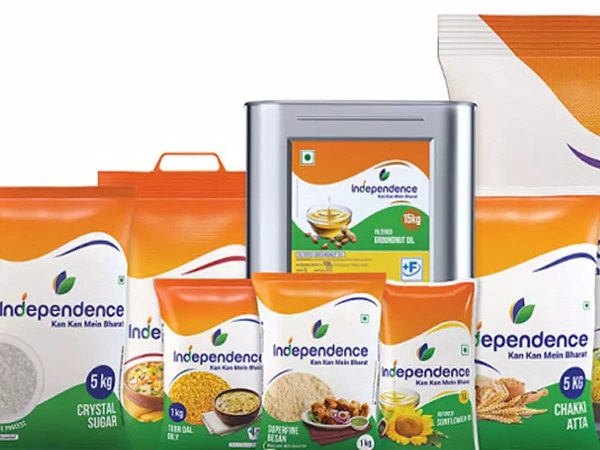Reliance Consumer Products is expanding its FMCG (Fast Moving Consumer Goods) brand called ‘Independence’ to North India. Reliance, owned by Mukesh Ambani, aims to gain a larger market share in the FMCG space, which is currently dominated by established players like ITC and Hindustan Unilever.
Reliance Consumer Products, a subsidiary of Reliance Retail Ventures Limited (RRVL), initially launched the ‘Independence’ brand in Gujarat in December of the previous year. The brand offers a range of FMCG products, including staples, processed foods, and other daily essentials. The expansion brings the brand to Punjab, Haryana, Delhi NCR, Uttar Pradesh, Uttarakhand, and Bihar in North India.
The company’s objective is to provide locally developed, high-quality products at affordable prices to meet the demand among a large segment of the Indian population. Reliance Consumer Products plans to collaborate with trade partners, including manufacturers and kirana stores, to enhance business opportunities. Additionally, the company intends to expand its distribution network through online and offline channels in the coming months to reach a wider consumer base across the country.
Mukesh Ambani had announced Reliance’s entry into the FMCG market at the company’s 45th annual general meeting in August of the previous year. Since then, Reliance has made strategic acquisitions of brands like Lotus Chocolate and formed partnerships to strengthen its presence in the FMCG market. The recent partnership with General Mills allows Reliance to enter the western snacks category by launching General Mills’ global corn chip brand, Alan’s Bugles, in India.
Reliance’s FMCG portfolio includes various brands such as Campa, Sosyo, Raskik drinks, Independence daily essentials, Toffeeman confectionery, Maliban biscuits, and Glimmer and Dozo home and personal care brands. The company aims to compete with established brands by offering competitive prices, particularly for entry-level packs.
The increased competition in the FMCG market is expected to lead to lower valuations for existing players, which could benefit consumers at the lower end of the market. However, mainstream FMCG companies are also strengthening their business structures and expanding their product portfolios to prepare for intensified competition. This includes acquiring local brands, investing in direct-to-consumer (D2C) digital brands, and establishing an omnichannel presence to cater to a wider range of consumer preferences and shopping habits.


